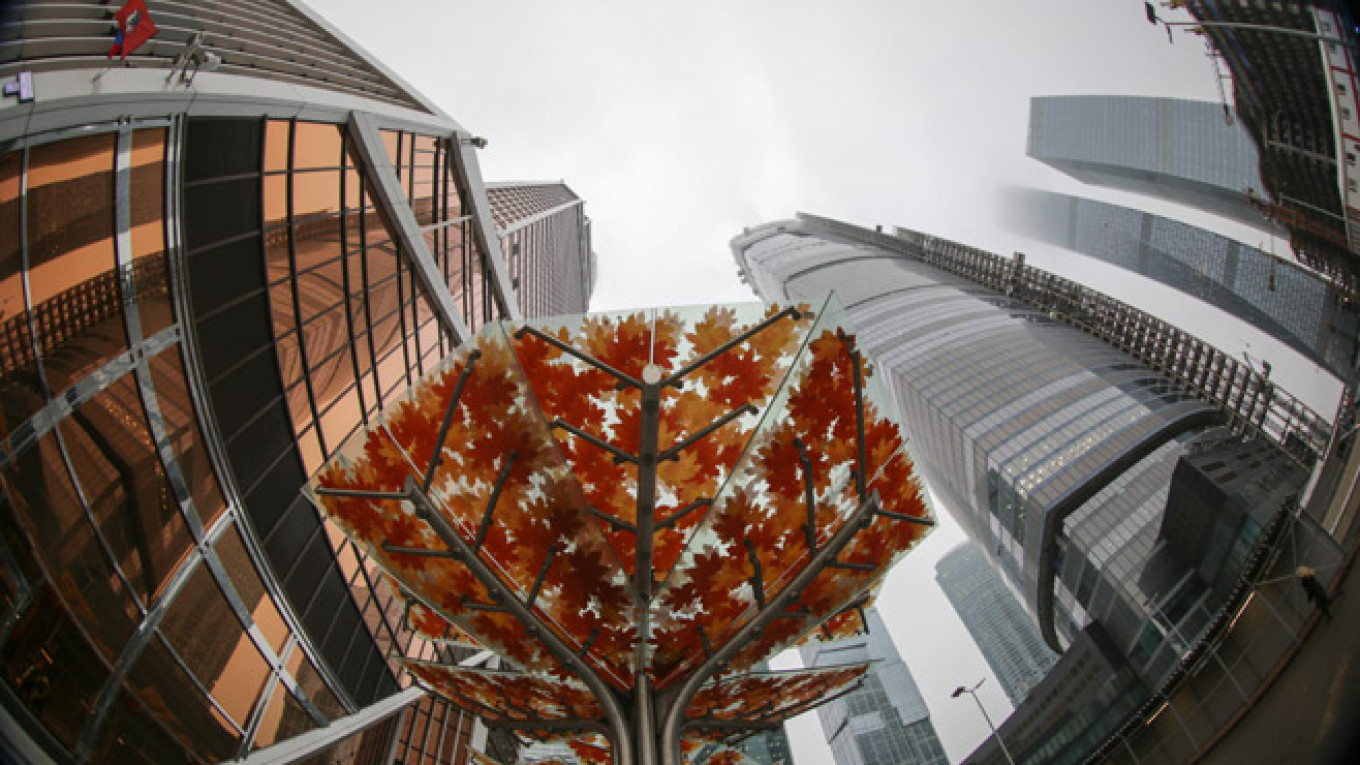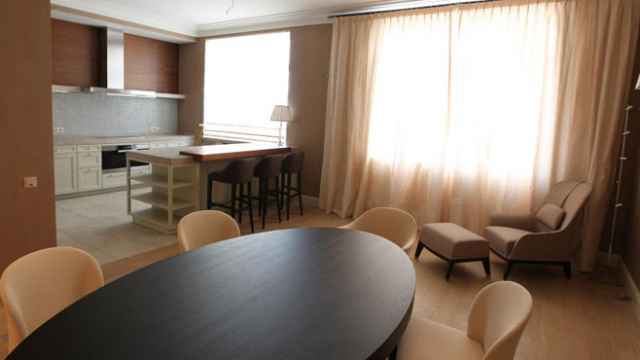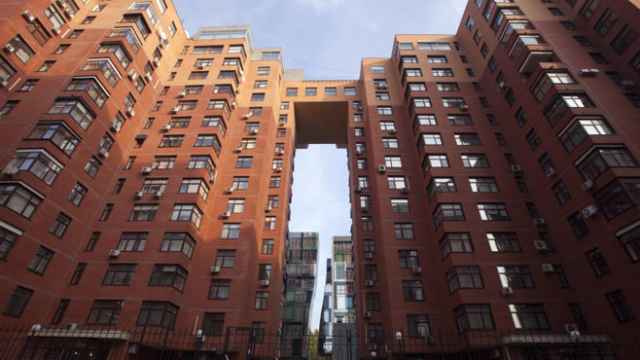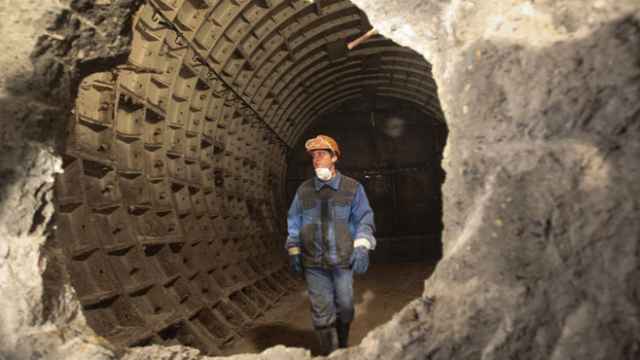Office rent costs in Moscow are likely to nearly halve this year as companies' need to economize amid an oncoming recession combines with market oversupply, analysts said.
Real estate agency Cushman & Wakefield expects office rents to fall by 30 or 40 percent, while commercial real estate firm CBRE predicts a less sharp but still significant price dip of between $100 and $50 for many office spaces — or around 20 percent — particularly in high-end segments.
According to CBRE, class "A prime" offices in 2015 will be $800-950 per square meter and between $475 and $600 per square meter for class "A" offices. In 2014 the same sectors went for $900-1000 and $550-650, respectively.
A key factor in the expected rental price drop is an oversupply of office space. By the end of 2014, companies occupied only 83 percent of Moscow's 15 million-square-meter stock of office space, leaving developers to hunt for tenants for the remaining 2.5 million square meters at the start of 2015. Luxury offices account for a disproportionately large percent of unrented space, with nearly a million square meters sitting idle, according to Cushman & Wakefield.
Russia's faltering economy is also hitting office developers hard. Russian office rents are typically denominated in U.S. dollars, but falling oil prices and Western sanctions over Moscow's role in the Ukraine crisis have collapsed the ruble's value by about 50 percent against the greenback since last summer.
The ruble's drop has led to Russian companies negotiating for a switch away from dollar payments, a position landlords are increasingly willing to consider. "Companies are actively seeking to reduce the cost of office and many owners are willing to respond to their needs," said Cushman & Wakefield's monitoring group head Yulia Bogomol.
And as Russia's economic situation worsens, with most experts predicting that Russia's economy will contract sharply in 2015, prices will be pushed down even further by falling demand as companies cut expansion plans. If economic conditions become even tougher, some companies may be forced to downsize or even go out of business entirely.
Developers, currently building nearly 2.3 million square meters of new office space in Moscow, are locked into construction plans for this year. However, both Cushman & Wakefield and CBRE analysts forecast a sharp fall in new office construction in 2016.
Russia had been experiencing an investment boom led by Moscow until 2014. Despite a pause during the 2008-09 crisis, commercial real estate development soon got back on its feet and, in 2013, $8.1 billion was poured into the sector, according to consultancy Jones Lang LaSalle. But last year investment sagged to less than half that, and analysts predict further falls in 2015.
Contact the author at s.skove@imedia.ru
A Message from The Moscow Times:
Dear readers,
We are facing unprecedented challenges. Russia's Prosecutor General's Office has designated The Moscow Times as an "undesirable" organization, criminalizing our work and putting our staff at risk of prosecution. This follows our earlier unjust labeling as a "foreign agent."
These actions are direct attempts to silence independent journalism in Russia. The authorities claim our work "discredits the decisions of the Russian leadership." We see things differently: we strive to provide accurate, unbiased reporting on Russia.
We, the journalists of The Moscow Times, refuse to be silenced. But to continue our work, we need your help.
Your support, no matter how small, makes a world of difference. If you can, please support us monthly starting from just $2. It's quick to set up, and every contribution makes a significant impact.
By supporting The Moscow Times, you're defending open, independent journalism in the face of repression. Thank you for standing with us.
Remind me later.






